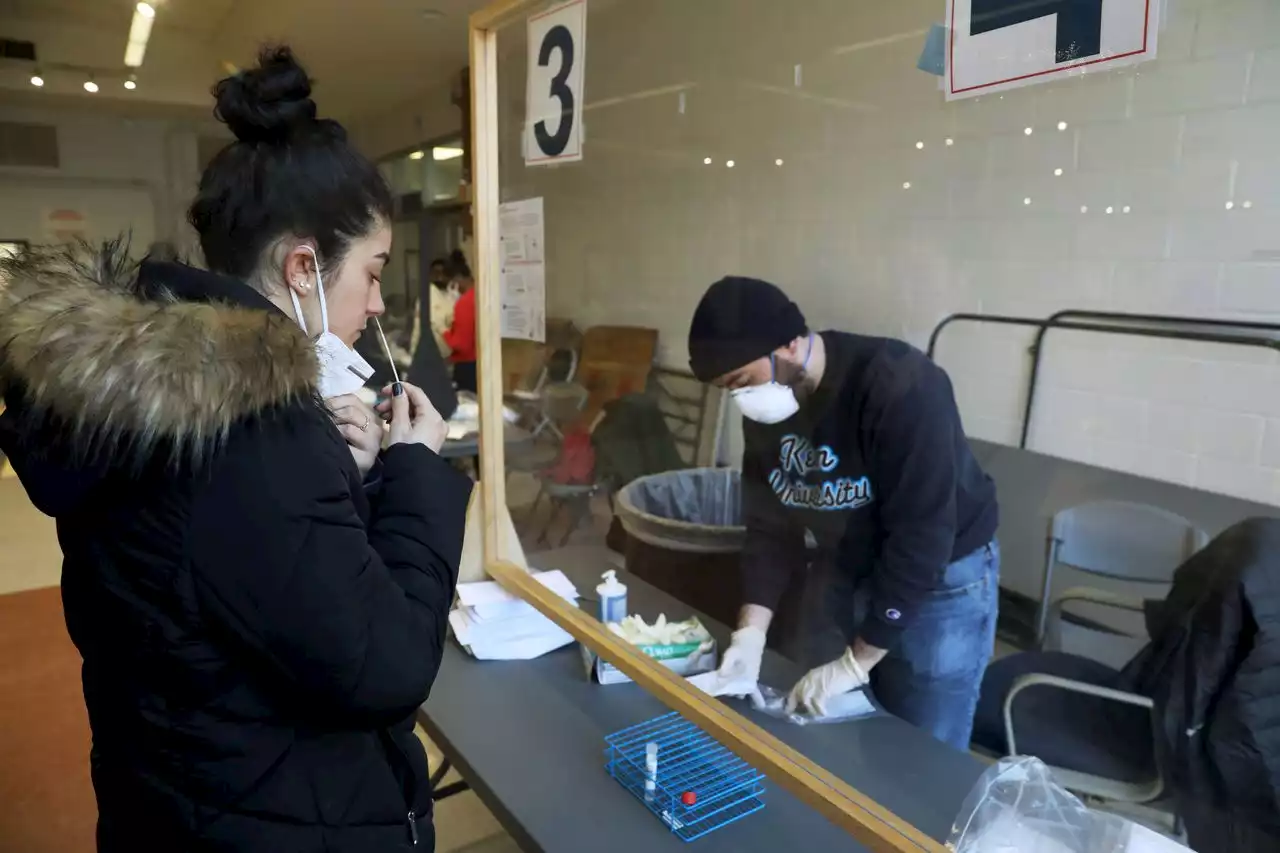COVID-19 positivity rates are back above 20% in parts of Manhattan, as the latest city data indicate the virus is digging in ahead of winter.
In the heart of Manhattan, the COVID positivity rate is above 20%, and across the island, transmission is rising as well
The rolling seven-day positivity rate in the Hell's Kitchen area of Manhattan is up to 22.5%, according to city data Wednesday. That is by far the highest rate in New York City, and no other neighborhood is close. Just a day prior, no neighborhood was over 20%. At the same time, the transmission rate in Manhattan, at 172.7 new cases per every 100,000 people over the last seven days, is up 7% in the last two weeks.
Citywide, the seven-day average of new daily confirmed and probable cases fell steadily all summer until early September, but since then has been stuck in a steady range between about 1,800 and 2,200 new cases a day.
United States Latest News, United States Headlines
Similar News:You can also read news stories similar to this one that we have collected from other news sources.
 COVID-era 'baby boom' marks the first major reversal in declining fertility rates since 2007A new paper confirms that there was an increase in births last year, primarily due to the COVID-19 pandemic. “We … found that the COVID pandemic resulted in a small ‘baby bump’ among U.S.-born mothers,” according to the paper.
COVID-era 'baby boom' marks the first major reversal in declining fertility rates since 2007A new paper confirms that there was an increase in births last year, primarily due to the COVID-19 pandemic. “We … found that the COVID pandemic resulted in a small ‘baby bump’ among U.S.-born mothers,” according to the paper.
Read more »
 California’s COVID state of emergency to end, counties fear lagging booster ratesGov. Gavin Newsom will end the COVID state of emergency on Feb. 28, despite warning of a potential winter surge.
California’s COVID state of emergency to end, counties fear lagging booster ratesGov. Gavin Newsom will end the COVID state of emergency on Feb. 28, despite warning of a potential winter surge.
Read more »
 N.J. reports 1,394 COVID cases, 13 deaths; hospitalizations remain above 1,000The state’s seven-day average for confirmed coronavirus positive cases is 1,334 — a 7% decrease from a week ago and a 9% decrease from a month ago.
N.J. reports 1,394 COVID cases, 13 deaths; hospitalizations remain above 1,000The state’s seven-day average for confirmed coronavirus positive cases is 1,334 — a 7% decrease from a week ago and a 9% decrease from a month ago.
Read more »
 Life expectancy rises in parts of Europe as U.S. still trends down post-COVID, study findsLife expectancy rates started to rebound last year in multiple countries throughout Europe following their COVID-19-era dip in 2020, according to a new study.
Life expectancy rises in parts of Europe as U.S. still trends down post-COVID, study findsLife expectancy rates started to rebound last year in multiple countries throughout Europe following their COVID-19-era dip in 2020, according to a new study.
Read more »
